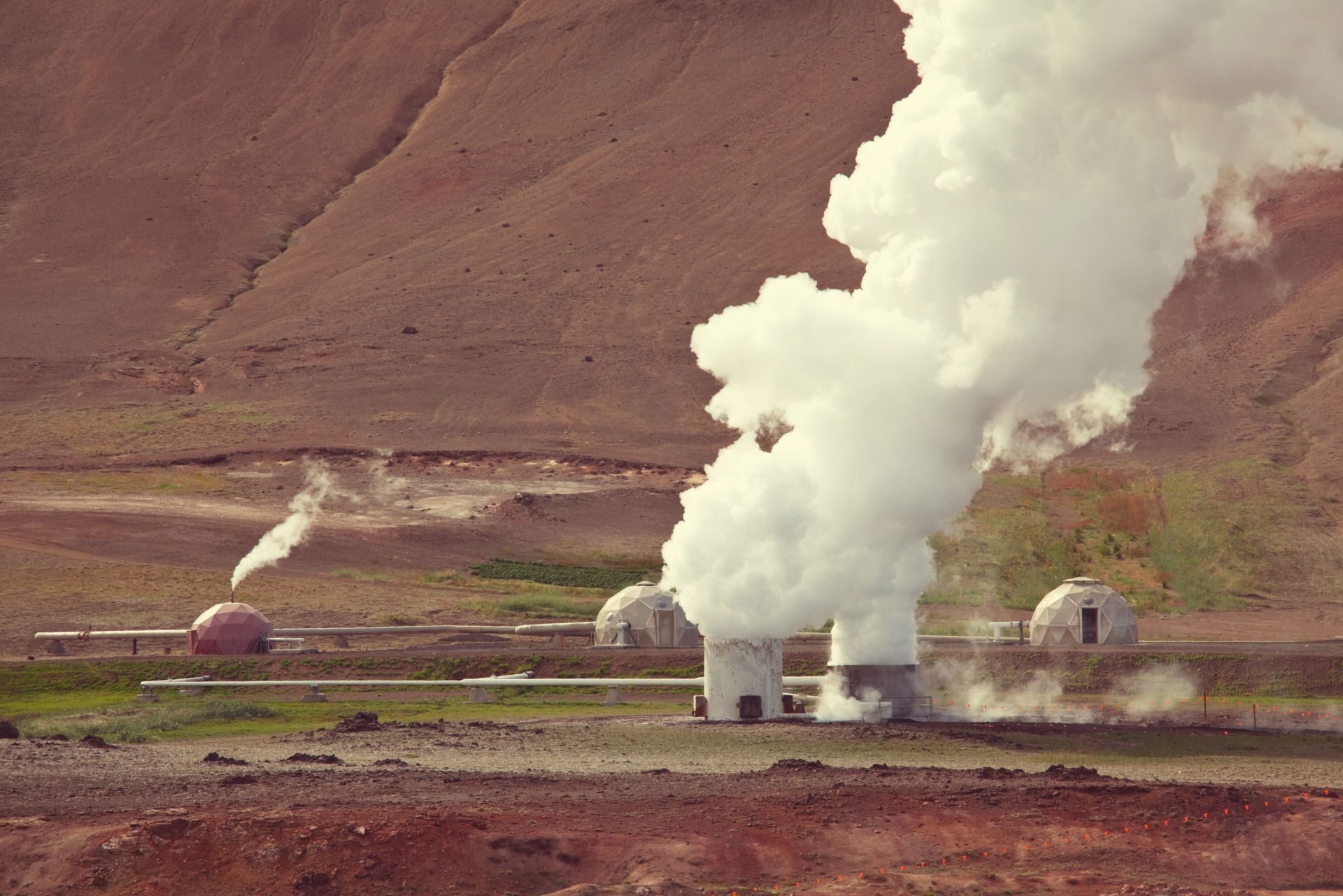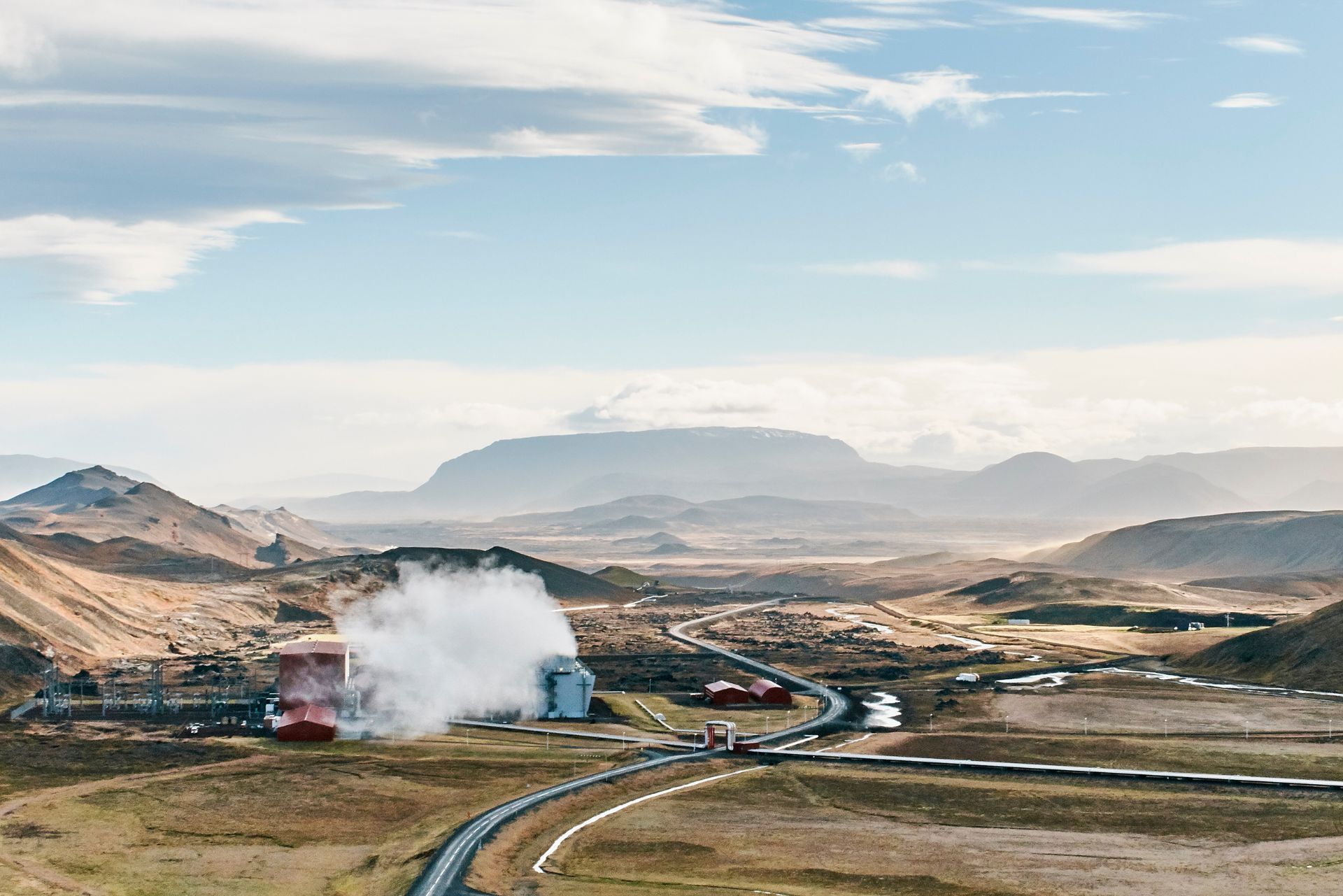Top 3 Recommended Policies

As the geothermal energy sector continues to expand rapidly, businesses operating within this industry face unique risks and challenges that require specialized insurance coverage. With geothermal power plants producing over 14,000 MW of electricity worldwide and the industry projected to grow at an 11% compound annual growth rate through 2026, understanding the nuances of geothermal energy business insurance is essential for protecting assets, operations, and investments. This article explores everything you need to know about insurance in the geothermal energy business, from the specific risks involved to the types of coverage available.
Understanding the Geothermal Energy Industry Landscape
Geothermal energy harnesses heat from the Earth’s core to generate electricity and provide heating solutions. Although it currently accounts for about 0.3% of the total global energy supply, its potential is immense. According to the International Energy Agency, geothermal energy could meet up to 15% of global electricity demand growth by 2050, necessitating the deployment of 800 GW of geothermal power capacity worldwide. This growth is driven by technological advancements and increased investment, especially in regions like the United States, where projections anticipate reaching 300 GW by 2050.
The industry’s maturation is expected to energize economies by enabling advanced manufacturing, reshoring of industries, and stabilizing electricity prices. For example, companies like Fervo Energy have demonstrated significant cost reductions in geothermal projects, with a recent Nevada project now powering Google’s data centers. These developments highlight the increasing scale and complexity of geothermal operations, which in turn influence insurance needs.
Given this dynamic environment, geothermal energy businesses must navigate risks related to exploration, drilling, plant construction, and operation. Insurance policies tailored to these risks are crucial to safeguard against financial losses and ensure business continuity. For more detailed insights into the industry’s growth and technological progress, see the Engineering News-Record’s report on geothermal energy growth.
Moreover, the geographical diversity of geothermal resources means that countries across different continents can tap into this energy source, from the volcanic regions of Iceland to the tectonically active areas in the Philippines and Indonesia. Each region presents unique challenges and opportunities, influencing the development of localized geothermal technologies and practices. For instance, in countries like New Zealand, where geothermal energy is already a significant part of the energy mix, ongoing research is focused on enhancing efficiency and reducing environmental impacts, showcasing the commitment to sustainable energy solutions.
Furthermore, the integration of geothermal energy into existing energy grids poses its own set of challenges. As geothermal plants often operate at a constant output, they can provide a stable base load of energy, which is essential for balancing intermittent renewable sources like wind and solar. This characteristic positions geothermal energy as a reliable partner in the transition towards a more resilient and sustainable energy future. Innovations in hybrid systems that combine geothermal with other renewable technologies are being explored, further enhancing the versatility and appeal of geothermal solutions in the global energy landscape.

Key Risks in the Geothermal Energy Business
Operating in the geothermal sector involves a unique set of risks that differ from other renewable energy sources. These risks can be broadly categorized into exploration and drilling risks, operational risks, environmental risks, and financial risks.
Exploration and Drilling Risks
One of the most significant challenges in geothermal energy is the uncertainty during exploration and drilling phases. Drilling deep into the Earth’s crust can lead to unexpected geological conditions, equipment failures, or even dry wells that fail to produce sufficient heat. These risks can cause substantial financial losses and project delays. The geological complexity of geothermal reservoirs can vary greatly from one location to another, making it crucial for companies to conduct thorough geological surveys and feasibility studies before committing to drilling. Moreover, advancements in technology, such as enhanced geothermal systems (EGS), are being explored to mitigate some of these risks by allowing for the creation of reservoirs in areas that were previously deemed unsuitable for geothermal energy production.
Operational Risks
Once a geothermal plant is operational, risks include equipment breakdown, reservoir depletion, and fluctuations in heat output. Geothermal plants generally boast a high utilization rate—over 75% in 2023 according to the International Energy Agency—due to their ability to provide around-the-clock electricity generation. However, maintaining this reliability requires robust maintenance and risk management strategies. Regular inspections and predictive maintenance using advanced data analytics can help identify potential issues before they escalate into major failures. Furthermore, the longevity of geothermal reservoirs is a critical concern; over-extraction can lead to a decline in reservoir pressure and temperature, necessitating careful management of resource extraction to ensure sustainable operation over the long term.
Environmental and Regulatory Risks
Geothermal projects must comply with environmental regulations concerning land use, water rights, and emissions. Potential environmental impacts such as induced seismicity (earthquakes triggered by drilling) and contamination of groundwater require careful monitoring and mitigation. Regulatory changes can also affect project viability and insurance requirements. In addition to compliance with local regulations, companies may face public opposition from communities concerned about the environmental impacts of geothermal projects. Engaging with stakeholders and conducting transparent environmental impact assessments can help alleviate concerns and foster community support, which is essential for the successful implementation of geothermal projects.
Financial and Market Risks
Fluctuations in energy prices, changes in government incentives, and competition from other energy sources can impact profitability. Additionally, large upfront capital investments and long project timelines increase financial exposure. Insurance can help mitigate some of these financial uncertainties. Investors in geothermal projects must also consider the volatility of the market for renewable energy credits and the potential for shifts in public policy that could either bolster or hinder the growth of geothermal energy. As the global energy landscape evolves, companies must remain agile and adapt their financial strategies to navigate these risks effectively, ensuring that they can capitalize on the growing demand for clean energy solutions.
Types of Insurance Coverage for Geothermal Energy Businesses
Given the diverse risks, geothermal energy companies typically require a combination of insurance policies tailored to their specific operations. Below are the primary types of coverage relevant to this sector.
Property and Equipment Insurance
This coverage protects physical assets such as drilling rigs, turbines, and power plants against damage from natural disasters, accidents, or equipment failure. Considering the high capital investment in geothermal infrastructure, property insurance is fundamental to safeguarding business continuity. Additionally, this type of insurance often includes coverage for business personal property, which can encompass office equipment and tools necessary for day-to-day operations. As geothermal technology continues to evolve, companies may also consider endorsements that cover emerging technologies and innovations, ensuring they are protected as they adopt new methods and equipment.
Liability Insurance
Liability insurance covers legal claims arising from bodily injury, property damage, or environmental harm caused by geothermal operations. This is particularly important given the potential for environmental incidents and the strict regulatory environment. Furthermore, many geothermal projects involve collaboration with local communities and stakeholders, making it essential for companies to have robust liability coverage that addresses public relations risks and community engagement issues. In some cases, companies may also opt for additional endorsements that specifically cover risks associated with geothermal fluid leaks or other unique operational hazards.
Business Interruption Insurance
In the event of operational downtime due to equipment failure, natural disasters, or regulatory shutdowns, business interruption insurance compensates for lost income and ongoing expenses. This coverage helps geothermal companies maintain financial stability during unforeseen disruptions. The complexity of geothermal operations means that even minor interruptions can lead to significant financial losses, making this insurance not just a safety net but a crucial component of financial planning. Moreover, companies should evaluate the duration of coverage and consider options for extended periods, especially in regions prone to natural disasters or where regulatory approvals can lead to prolonged delays.
Exploration and Drilling Insurance
Specialized policies address risks during the exploration and drilling phases, including well blowouts, equipment damage, and unsuccessful wells. These policies are tailored to the high-risk nature of geothermal drilling operations. Given the geological uncertainties inherent in geothermal exploration, companies often face unique challenges that necessitate comprehensive coverage. This may include provisions for geological surveys and assessments, which can mitigate risks before drilling begins. Additionally, as the industry pushes towards more sustainable practices, some insurance providers are beginning to offer products that reward companies for implementing environmentally friendly drilling techniques.
Environmental Liability Insurance
This insurance covers costs related to environmental cleanup, legal defense, and damages resulting from pollution or other environmental incidents. Given the potential for induced seismicity and groundwater contamination, this coverage is critical for geothermal projects. Furthermore, as public awareness and regulatory scrutiny surrounding environmental issues increase, having robust environmental liability insurance can enhance a company's reputation and foster trust with stakeholders. Companies may also find value in policies that provide coverage for proactive environmental risk management, such as monitoring and reporting systems that help detect potential issues before they escalate into costly problems.
Why Geothermal Energy Businesses Need Specialized Insurance
General commercial insurance policies often do not adequately address the specific risks associated with geothermal energy projects. The complexity and scale of geothermal operations require insurers with expertise in the energy sector and an understanding of geothermal technologies. This specialized knowledge is crucial, as geothermal energy systems involve unique components such as drilling rigs, heat exchangers, and power plants that can be subject to distinct hazards, including geological instability and equipment failure. Without tailored coverage, businesses may find themselves vulnerable to significant financial losses that could jeopardize their operations.
Moreover, the geothermal industry is evolving rapidly. For instance, recent technological breakthroughs have led to a 50% cost reduction in geothermal projects, as demonstrated by Fervo Energy’s Nevada project powering Google’s data centers. These advancements not only change the risk profile but also attract new investors and partners who demand comprehensive risk management through insurance. Innovations such as enhanced geothermal systems (EGS) and improved drilling techniques are pushing the boundaries of what is possible in geothermal energy, but they also introduce new challenges that require a nuanced understanding of risk assessment and mitigation strategies.
As the industry grows, with projections for the global geothermal capacity to expand significantly by 2050, businesses must stay ahead by securing insurance that covers emerging risks and complies with evolving regulations. For a detailed perspective on geothermal’s future potential and utilization rates, refer to the International Energy Agency’s executive summary on geothermal energy. Additionally, the increasing focus on sustainability and reducing carbon footprints has led to a surge in governmental incentives and subsidies for renewable energy projects, including geothermal. This shift not only enhances the attractiveness of geothermal investments but also necessitates a robust insurance framework that can adapt to the dynamic regulatory landscape and support businesses in navigating these opportunities effectively.
Furthermore, the geographic diversity of geothermal resources means that businesses must also consider location-specific risks, such as seismic activity or environmental regulations that vary from one region to another. Insurers with a deep understanding of local conditions and regulatory environments can provide invaluable guidance to geothermal companies, helping them to tailor their insurance policies to address these localized challenges. As geothermal energy continues to gain traction as a viable alternative to fossil fuels, the need for specialized insurance solutions will only become more pronounced, ensuring that companies can operate with confidence in an increasingly competitive market.

Choosing the Right Insurance Provider
Selecting an insurance provider with experience in the geothermal sector is crucial. Providers should offer customized policies that reflect the unique operational and environmental risks of geothermal energy projects. Businesses should look for insurers who understand the technical aspects of geothermal drilling, plant operation, and environmental management. A knowledgeable insurer will not only be familiar with the intricacies of geothermal technology but will also be aware of the regulatory landscape that governs these projects, ensuring that all policies are compliant with local and national laws.
Additionally, insurers who are proactive in risk assessment and mitigation can provide added value by helping businesses implement safety protocols and compliance programs. This partnership approach can reduce premiums and improve overall risk management. By collaborating with insurers who prioritize ongoing education and training, companies can stay ahead of potential hazards and adapt to evolving industry standards. Furthermore, a provider that offers access to a network of experts in geothermal energy can enhance a business's operational efficiency, providing insights that lead to improved safety and reduced downtime.
Moreover, it is essential to evaluate the insurer's claims process. A streamlined and transparent claims process can significantly impact a business's ability to recover from losses swiftly. Insurers that employ dedicated claims adjusters familiar with geothermal operations can expedite the resolution of claims, minimizing financial strain during challenging times. Additionally, businesses should inquire about the insurer's history of handling claims within the geothermal sector, as this can provide insight into their reliability and commitment to supporting their clients in times of need.
Finally, consider the insurer's financial stability and reputation within the industry. Researching ratings from independent agencies can help businesses gauge the provider's ability to meet its obligations. A well-established insurer with a strong track record in the geothermal sector not only offers peace of mind but also reflects a commitment to the long-term viability of renewable energy solutions. By taking the time to thoroughly assess potential insurance providers, businesses can forge partnerships that enhance their resilience and sustainability in the geothermal energy landscape.
Cost Considerations and Risk Mitigation Strategies
Insurance costs for geothermal energy businesses vary depending on factors such as project size, location, technology used, and risk management practices. While insurance premiums represent an additional operational cost, effective risk mitigation can lower these expenses.
Implementing rigorous safety standards, conducting thorough geological surveys, and investing in advanced monitoring technologies can reduce the likelihood of accidents and environmental incidents. These measures not only protect the business but also make it more attractive to insurers.
Furthermore, as the geothermal industry matures and technology advances, cost reductions are expected. The recent 50% cost reduction in geothermal projects by Fervo Energy exemplifies this trend, which may eventually translate into more affordable insurance premiums.
Conclusion: Securing the Future of Geothermal Energy Businesses
As geothermal energy continues to gain momentum globally, businesses in this sector must prioritize comprehensive insurance coverage to manage the unique risks they face. From exploration and drilling to plant operation and environmental compliance, tailored insurance policies are essential for protecting assets, ensuring regulatory adherence, and maintaining financial resilience.
With the geothermal industry poised for substantial growth—potentially meeting 15% of global electricity demand growth by 2050 and expanding capacity to hundreds of gigawatts—robust insurance strategies will play a vital role in supporting sustainable development. By partnering with knowledgeable insurers and implementing proactive risk management, geothermal energy businesses can confidently navigate challenges and contribute to a cleaner, more reliable energy future.
For further insights into the industry’s growth and the importance of geothermal energy, explore the
ZipDo Education Reports on geothermal industry statistics.
Contact Us
Phone
Location
9595 Six Pines Dr, Suite 8210, The Woodlands, TX 77380

